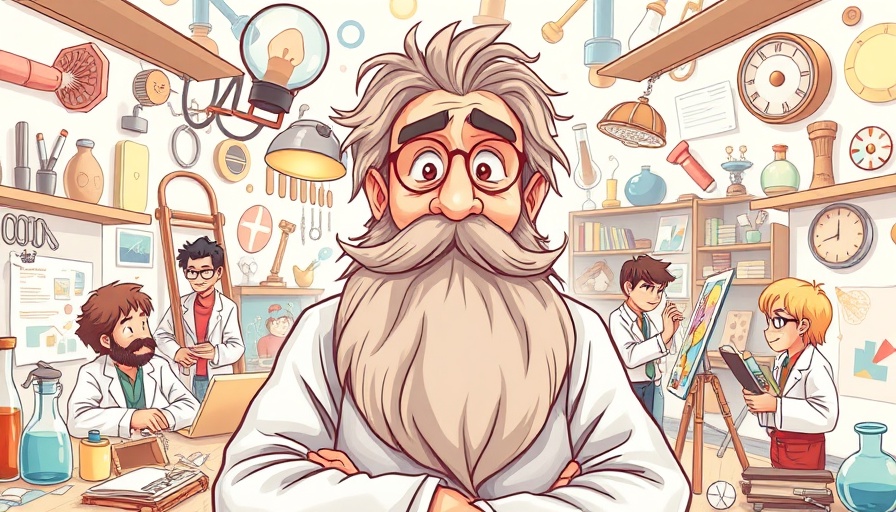
The Rise of Creativity in Modern Society
In an age marked by political divides and societal unrest, one value seems to unite people from all walks of life: creativity. In his insightful book, The Cult of Creativity, historian Samuel Franklin explores how creativity has transformed from a rarely discussed concept to a revered ideology since its first documented use in the late 19th century. Americans today are taught to cherish creativity as the cornerstone of personal fulfillment and success, creating a culture that meticulously nurtures this value.
Historical Context: The Birth of Creativity as an Ideology
Surprisingly, the term 'creativity' was not widely recognized until 1875, and prior to 1950, discussions explicitly surrounding this concept were virtually non-existent. Franklin articulates how the post-World War II period catalyzed a shift in cultural narratives. As conformity and bureaucracy began to permeate American life, creativity emerged as a counterbalance, providing space for individual expression.
Creativity as a Solution to Modern Challenges
Franklin posits that the modern obsession with creativity stems from a need to alleviate the anxieties produced by conformity triggers. He argues that it has become essential for industries struggling to innovate in a crowded market. The push for creative thought in corporate America, especially with tactics like brainstorming spawned in the 1950s, illustrates how businesses sought to leverage creativity as a tool for problem-solving and differentiation.
Broader Implications: Beyond Artistry to Industry
The value of creativity is not limited to traditional arts; it's a crucial competency in diverse fields—from engineering to entrepreneurship. Senior managers and decision-makers can harness this cultural shift to foster environments that prioritize creative thinking, generating innovative solutions and enhancing productivity. Franklin's analysis reveals that creativity allows individuals to reclaim agency in their roles, importantly blending individualism with the collective ethos of organizational structures.
Future Trends: The Continuing Cult of Creativity
Looking forward, the trends suggest that the cult of creativity will only become more entrenched in our educational systems and workplace cultures. As automation and AI reshape industries, creativity will remain a critical skill that cannot be easily replicated by machines. For executives and leaders in technology and innovation, fostering a culture that values imagination and divergent thinking may soon become paramount for sustainable growth and resiliency.
Final Thoughts: Making Creativity Count
In a rapidly evolving landscape, understanding the historical and cultural significance of creativity can offer profound insights into how we approach both personal and professional challenges. Engaging with Franklin's work prompts us to consider not only how we can cultivate creativity within ourselves and our teams but also how we can leverage it to address the multifaceted problems facing society today.
 Add Row
Add Row  Add
Add 




Write A Comment